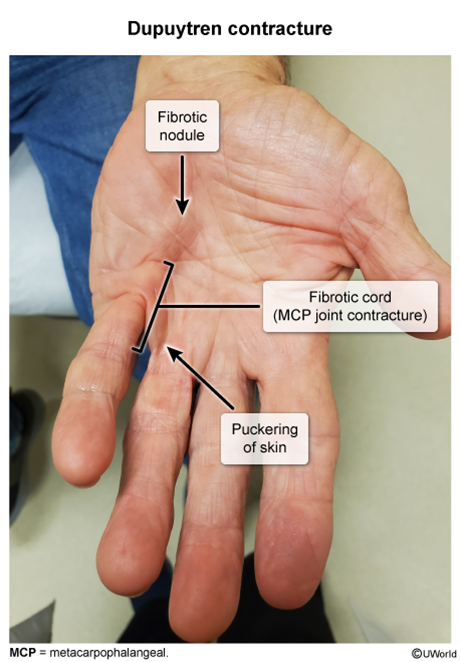Dupuytren Contracture
Article Sections
Introduction
Dupuytren contracture (DC) is a progressive fibroproliferative disorder affecting the palmar fascia, leading to fascial thickening, nodule/cord formation, and eventual contracture with an inability to fully extend the finger(s). DC typically affects the third, fourth, and fifth digits and is common in men of northern European descent. DC tends to progress slowly over years/decades, although the degree of severity and functional impairment varies among individuals.
Pathophysiology
Dupuytren contracture (DC) is marked by excessive fibroblast proliferation and collagen deposition (particularly type III collagen) within the superficial palmar fascia. Fibrosis is thought to be caused by overstimulation of the Wnt signaling pathway, which helps regulate fibroblast proliferation, polarity, and differentiation.
Risk factors
Risk factors include age >50, male sex, family history, and Northern European ancestry. Manual work (eg, gardening) may also be a risk factor. DC occurs more commonly in patients with a history of tobacco and alcohol use and diabetes mellitus.
Continue Learning with UWorld
Get the full Dupuytren Contracture article plus rich visuals, real-world cases, and in-depth insights from medical experts, all available through the UWorld Medical Library.
Unlock Full AccessImages
